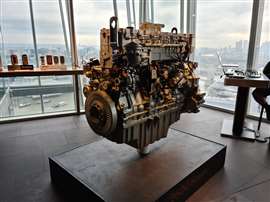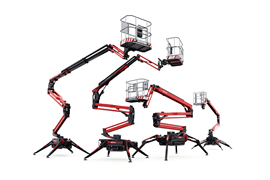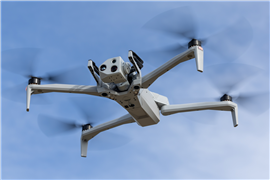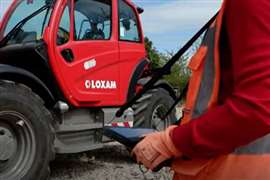Perkins shows 2600 Series engine, reveals future tech plans
12 September 2023
Following on from the unveiling of a series of new engines and the 48-, 300- and 600-volt range of li-ion battery packs at the 2023 ConExpo-Con/Agg trade show in March, Perkins Engines has outlined more details about the company’s future areas of technical investigation.
In addition to the introduction of new, more fuel-efficient engines which offer stronger sustainability credentials, the company plans to invest further in new battery technologies and hybrid powertrains. Additionally, there are plans to start a new programme covering development of engines intended to use alternative fuels; ethanol, methanol, biomethane and hydrogen.
At the press event, held in central London, the UK-based engine OEM took the opportunity to share more details about the new 2600 Series engine.
 The new Perkins 13 L engine (also known as 2606) is designed to offer the power delivery of 15- or 18-L models, but with a considerably smaller footprint. (Photo: Julian Buckley)
The new Perkins 13 L engine (also known as 2606) is designed to offer the power delivery of 15- or 18-L models, but with a considerably smaller footprint. (Photo: Julian Buckley)
First shown at the ConExpo/Con-Agg show, the 13-litre 2600 Series engine (also known as 2606) is designed to offer the power delivery of 15- or 18-litre models, but with a considerably smaller footprint. This means that it would be a suitable replacement for those larger engines, while delivering more power.
Speaking about the new prototype, which is now in testing, Allen Chen, Marketing manager for Mid-Size Engines (including 9- to 13-litre models) noted: “You can see from motorsport that it’s possible to get a lot of power from a very small [engine] package, but we’re looking for a balance of power and durability.”
Perkins is also set to start development of a new range of alternative fuels engines. These will help to support OEM customers as the market works through the current ‘energy transition’.
Speaking about the new project, Paul Moore, head of Powertrain System Integration Engineering – Industrial Power Systems division, said: “Why do we need alternative fuels when we have drop-in replacements; the response is scalability, there won’t be enough [drop-ins] to support the market.”
The challenge will be to develop engines which share components and software, while supporting the different characteristics of these fuels, which include ethanol, methanol, biomethane and hydrogen. But Moore said that the goal is to “deliver drop-in diesel performance, regardless of fuel type.”
At the same time, Perkins will start Project Coeus, which focuses on ease of integration. The goal of this will be to deliver engines which require minimal vehicle rework, which is set to help to smaller companies with engine-related development costs.
Diesel Progress and Diesel Progress International will have more details about future Perkins projects shortly.
STAY CONNECTED



Receive the information you need when you need it through our world-leading magazines, newsletters and daily briefings.
CONNECT WITH THE TEAM












